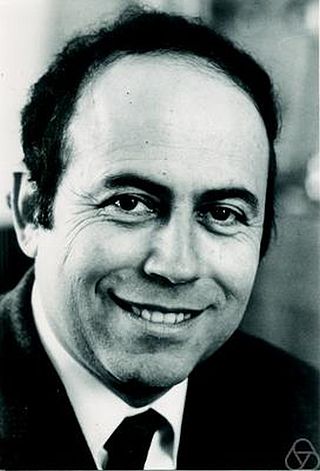
Michael Oser Rabin is an Israeli mathematician, computer scientist, and recipient of the Turing Award.

In computer science, model checking or property checking is a method for checking whether a finite-state model of a system meets a given specification. This is typically associated with hardware or software systems, where the specification contains liveness requirements as well as safety requirements.
In logic, linear temporal logic or linear-time temporal logic (LTL) is a modal temporal logic with modalities referring to time. In LTL, one can encode formulae about the future of paths, e.g., a condition will eventually be true, a condition will be true until another fact becomes true, etc. It is a fragment of the more complex CTL*, which additionally allows branching time and quantifiers. LTL is sometimes called propositional temporal logic, abbreviated PTL. In terms of expressive power, linear temporal logic (LTL) is a fragment of first-order logic.
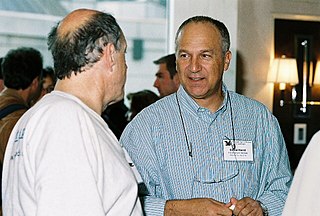
David Harel is a computer scientist, currently serving as President of the Israel Academy of Sciences and Humanities. He has been on the faculty of the Weizmann Institute of Science in Israel since 1980, and holds the William Sussman Professorial Chair of Mathematics. Born in London, England, he was Dean of the Faculty of Mathematics and Computer Science at the institute for seven years.
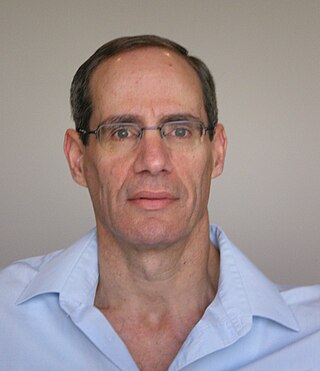
Noga Alon is an Israeli mathematician and a professor of mathematics at Princeton University noted for his contributions to combinatorics and theoretical computer science, having authored hundreds of papers.

Moshe Ya'akov Vardi is an Israeli mathematician and computer scientist. He is the Karen Ostrum George Distinguished Service Professor in Computational Engineering at Rice University, United States. and a faculty advisor for the Ken Kennedy Institute. His interests focus on applications of logic to computer science, including database theory, finite model theory, knowledge of multi-agent systems, computer-aided verification and reasoning, and teaching logic across the curriculum. He is an expert in model checking, constraint satisfaction and database theory, common knowledge (logic), and theoretical computer science.

Rajeev Alur is an American professor of computer science at the University of Pennsylvania who has made contributions to formal methods, programming languages, and automata theory, including notably the introduction of timed automata and nested words.

Ernest Allen Emerson II, better known as E. Allen Emerson, is an American computer scientist and winner of the 2007 Turing Award. He is Professor and Regents Chair Emeritus at the University of Texas at Austin, United States.

Yuri Gurevich, Professor Emeritus at the University of Michigan, is an American computer scientist and mathematician and the inventor of abstract state machines.
The Annual ACM Symposium on Theory of Computing (STOC) is an academic conference in the field of theoretical computer science. STOC has been organized annually since 1969, typically in May or June; the conference is sponsored by the Association for Computing Machinery special interest group SIGACT. Acceptance rate of STOC, averaged from 1970 to 2012, is 31%, with the rate of 29% in 2012.
In computer science, alternating-time temporal logic, or ATL, is a branching-time temporal logic that extends computation tree logic (CTL) to multiple players. ATL naturally describes computations of multi-agent systems and concurrent games. Quantification in ATL is over program-paths that are possible outcomes of games. ATL uses alternating-time formulas to construct model-checkers in order to address problems such as receptiveness, realizability, and controllability.

Orna Berry, is an Israeli computer scientist, high-tech entrepreneur, and senior executive in the Israeli science and technology industries. In 1996, Berry became the first woman to serve as chief scientist and head of the industrial R&D operation of the Israeli Ministry of Industry, Trade and Labour. She was awarded the "Yekirat Hanegev" award from Ben-Gurion University of the Negev in 2012.
Pierre Wolper is a Belgian computer scientist at the University of Liège. His research interests include verification methods for reactive and concurrent programs, as well as temporal databases. He is the co-recipient of the 2000 Gödel Prize, along with Moshe Y. Vardi, for his work on temporal logic with finite automata. He also received the 2005 Paris Kanellakis Award for this work.
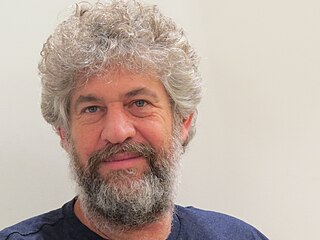
Noam Nisan is an Israeli computer scientist, a professor of computer science at the Hebrew University of Jerusalem. He is known for his research in computational complexity theory and algorithmic game theory.

Orna Grumberg is an Israeli computer scientist and academic, the Leumi Chair of Science at the Technion.
Christel Baier is a German theoretical computer scientist known for her work in model checking, temporal logic, and automata theory. She is a professor at TU Dresden, where she holds the chair for Algebraic and Logic Foundations of Computer Science in the Faculty of Computer Science. Baier is the editor-in-chief of Acta Informatica.
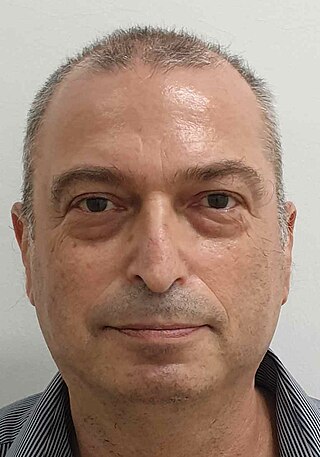
Doron A. Peled is a computer science Professor at Bar-Ilan University. His research interests include formal methods, model checking, program synthesis and runtime verification. With Edmund M. Clarke and Orna Grumberg, he is the coauthor of the book Model Checking and the author of the book Software Reliability Methods.

Patricia Bouyer-Decitre is a French theoretical computer scientist known for her research on timed automata, model checking, and temporal logic. She is a senior researcher for the French National Centre for Scientific Research (CNRS), and director of the Laboratoire Méthodes Formelles of CNRS and the École normale supérieure Paris-Saclay.
Krzysztof R. Apt is a Polish computer scientist. He defended his PhD in mathematical logic in Warsaw, Poland in 1974. His research interests include program correctness and semantics, use of logic as a programming language, distributed computing, and game theory. Besides his own research, he has been heavily involved in service to the computing community, notably by promoting the use of logic in computer science and by advocating open access to scientific literature.
Lenore D. Zuck is an Israeli-American computer scientist whose research involves formal methods in software engineering, as well as information privacy. She is a research professor of computer science at the University of Illinois Chicago.













